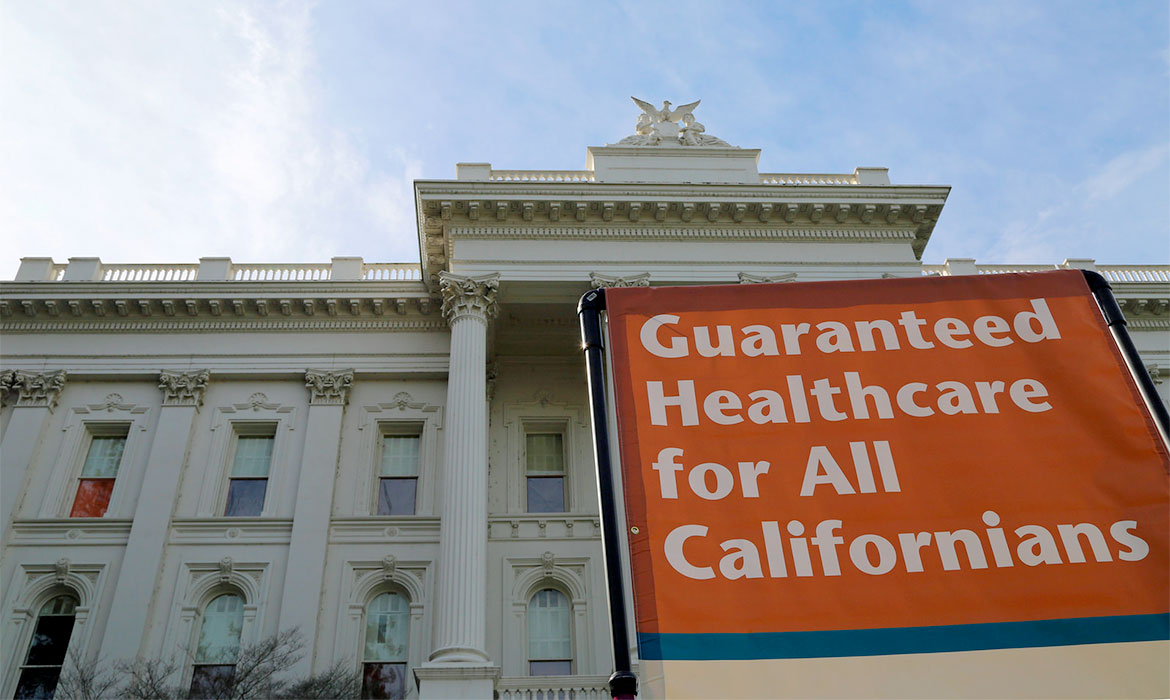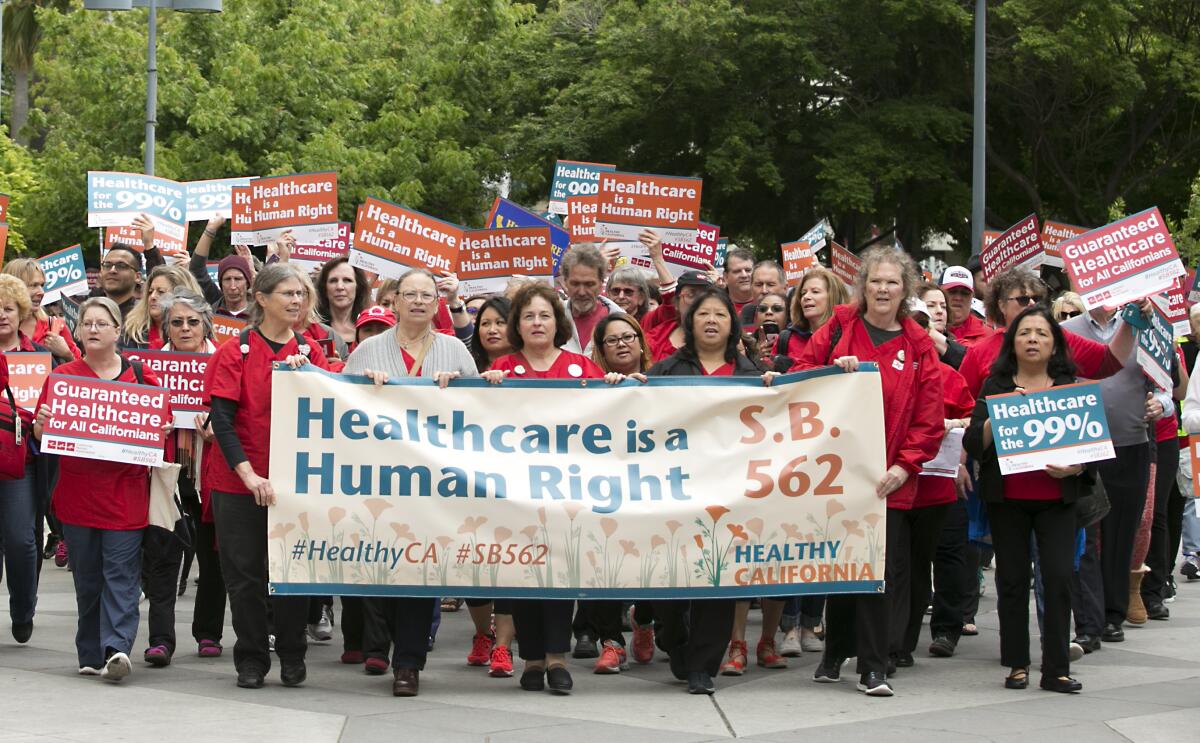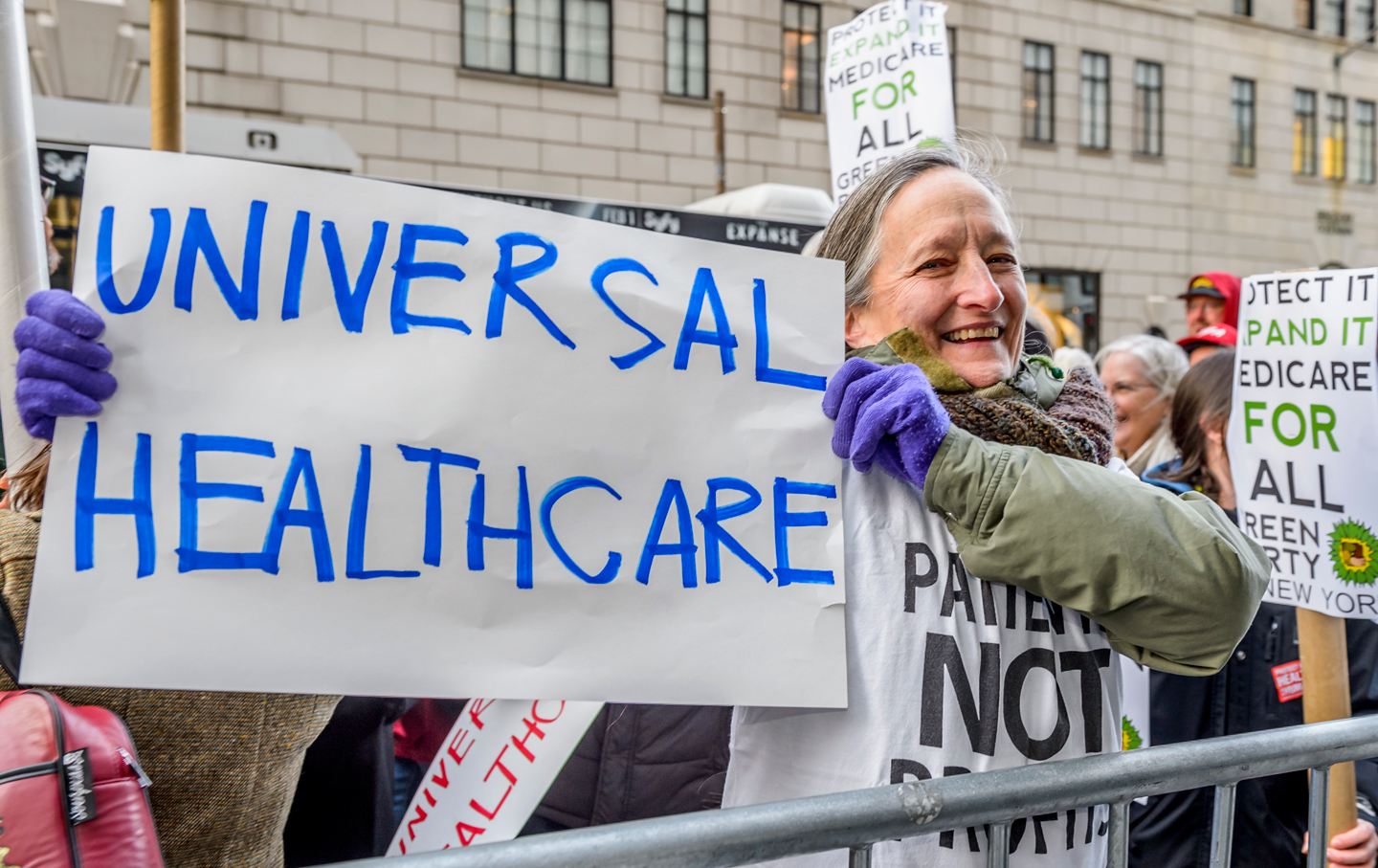California is on the brink of a major transformation in health care management with the introduction of AB 2200, a pioneering bill set to introduce a single-payer system named CalCare. This ambitious proposal aims to provide universal coverage to all Californians, irrespective of their financial or employment status.
As the Golden State edges closer to potentially setting a national precedent, the question arises: Could this be the moment when universal health care becomes a reality in America?

CalCare: A Universal Promise
AB 2200 stands out for its comprehensive approach to health care. It promises to integrate the broad spectrum of existing healthcare benefits from federal and state provisions, including the Children’s Health Insurance Program and Medi-Cal.
The proposal is designed to cover a wide range of medical benefits and other services, ensuring that every Californian has access to necessary health care without the burden of excessive costs.
“Mammoth Hospital emergency room nurse Kory Ferguson, right, hands skier Sharon Harrison, left, an analgesic after she seriously injured her ankle in a fall on the slopes at Mammoth Mountain,” illustrates the type of immediate and comprehensive care that could become commonplace under CalCare.

Financial Feasibility: A Major Hurdle
Despite the optimistic outlook, the financial implications of AB 2200 are significant, with estimated costs ranging between $494 billion to $522 billion. This massive financial undertaking presents a substantial challenge in gaining legislative approval.
Chris Fong, CEO of Smile Insurance Group, points out the necessity for medical providers to adapt, stating, “The bill has the obvious issue of financial feasibility but additionally the medical providers will need to accept to receive patients under the universal healthcare option.”
🚨BREAKING – California passes SOCIALIST universal healthcare bill that would double taxes: pic.twitter.com/zFG1eUJIs8
— Max Bonilla (@outragedteen_) April 27, 2024
Legislative and Public Support
The political climate may be shifting in favor of such transformative healthcare policies. Assemblymember Liz Ortega reflects on the post-pandemic landscape: “I think coming out of the pandemic, we’re seeing the desire for people to have health care more. I think it’s changed a lot of minds and more and more people are committed to making sure people don’t have to suffer or die because they pay to go to the doctor.”
However, the path to legislation is fraught with challenges. Political strategist Kaivan Shroff cautions, “The bill has failed to pass in the past and I expect it might face a similar fate this go around despite some progressive turnover in the state legislature.”

Regulation on Health Care Costs
In parallel to the proposed bill, California has also enacted a new rule limiting annual price increases to just 3 percent for doctors and health insurance companies starting in 2029. This move, as stated by Governor Gavin Newsom, is a crucial step toward “reigning in outrageous health care costs and making health care more affordable.”
This rule aims to tackle the escalating healthcare spending which, according to the Centers for Medicare and Medicaid Services, reached a staggering $4.5 trillion in 2022.
California’s Health Reform: AB 2200’s Potential Impact
As California stands at the forefront of potentially revolutionary healthcare reforms, the outcomes of AB 2200 and the new pricing rule will be closely watched. These initiatives could not only redefine healthcare accessibility in California but also set a precedent for other states to follow. The road ahead is complex and fraught with debate, yet the promise of a healthier future for all Californians may well be worth the endeavor.









